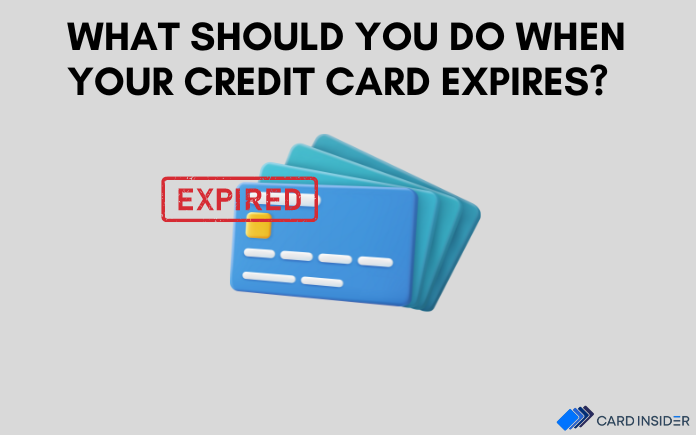What Should You Do When Your Credit Card Expires?
Credit cards are a convenient way to pay for purchases, but they do have a lifespan. Eventually, your credit card will expire, and you'll need to take some steps to ensure that your account stays active and your credit score remains intact. In this article, we'll explore what you should do when your credit card expires and provide tips for managing your credit card accounts.
Watch for Your Expiration Date
The first step in managing your credit card
accounts is to be aware of when your cards are set to expire. Most credit cards
have an expiration date printed on the front or back of the card, typically in
the month and year format (e.g., 02/23). It's a good idea to set a reminder on
your calendar or phone a month or two before your card's expiration date to give
yourself enough time to take action.
Wait for Your Replacement Card
Most credit card issuers will automatically
send you a replacement card before your current card expires. This new card
will have a new expiration date and a new security code (the three-digit number
on the back of your card). If you don't receive your new card within a week or
two of your expiration date, contact your credit card issuer to find out what's
going on.
Update Your Auto-Pay and Payment
Information
If you have your credit card set up for
auto-payments or have saved your card information with merchants, be sure to
update this information with your new card number and expiration date.
Otherwise, your payments may not go through, and you could incur late fees or
damage to your credit score. It's also a good idea to check your credit card
statement for any automatic payments that you no longer need or want to cancel.
Check Your Rewards and Benefits
If your credit card offers rewards points,
cashback, or other benefits, be sure to check your account to make sure that
they carry over to your new card. Some rewards programs may expire, so it's a
good idea to use your rewards points before your old card expires. Also, be
sure to check your new card's benefits to see if there are any changes or
updates that could benefit you.
Destroy Your Old Card
Once you receive your new credit card, be sure
to destroy your old card. Cut it up into small pieces and dispose of it
securely. This will prevent anyone from using your old card and will protect
you from identity theft.
Update Your Account Information
with Other Services
If you have your credit card linked to any
other services, such as PayPal or a mobile wallet, be sure to update your
account information with your new card number and expiration date. This will
ensure that you can continue to use these services without interruption.
Monitor Your Credit Score
Finally, it's a good idea to monitor your
credit score after you receive your new credit card. Your credit score can be
affected by changes to your credit card accounts, including the opening of a
new account or the closing of an old one. Be sure to check your credit report
regularly to ensure that all of your accounts are accurate and up to date.
Conclusion
Managing your credit card accounts when your
card expires is an important part of maintaining good credit health. By
watching for your expiration date, waiting for your replacement card, updating
your auto-pay and payment information, checking your rewards and benefits,
destroying your old card, updating your account information with other
services, and monitoring your credit score, you can ensure that your credit
card accounts remain active and that you continue to enjoy the benefits of
credit card use.
Read More: Step-By-Step Guide To Activating your New Credit Card



Comments
Post a Comment